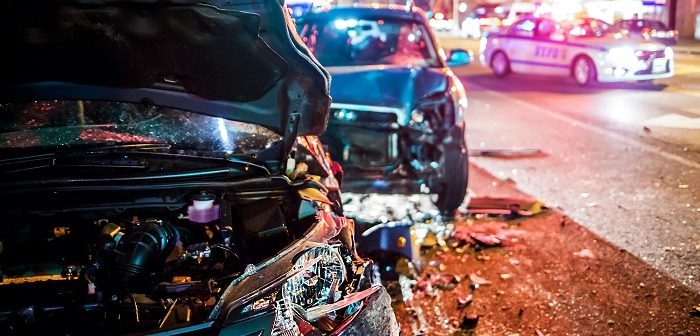Every teenager looks forward to that moment when they can finally get their license. They can’t wait to visit their friends, go to the movies, and move around without needing someone to take them. If this is the case for you, you might be fearful of receiving the call that every parent dreads responding to—that your teen has been involved in a car accident.
As new drivers, teens aged 16 to 19 years old are nearly three times more likely than adults to be involved in a car accident. In their first year of driving, on-fifth of all 16-year-old drivers get involved in motor vehicle crashes. As a parent, it’s important that you know how to react in case your teen ever gets involved in an accident. It’s your duty to remain calm and do your best to make sure they have a full and speedy recovery. Here are five ways you can help your teen recover from a motor vehicle crash:
Seek Medical Care Immediately
The first thing you need to do is to establish that your teen is safe. You should get to the scene as quickly as possible to help them feel safer and supported. Keep in mind that even a seemingly minor crash can cause injuries to your teen. As such, you should have them checked out by a medical professional just to be on the safe side.
The longer you let your teen’s pain or injuries go without proper medical care, the less likely it is that they’ll reach a full recovery. Get a thorough medical examination immediately. You want the injuries properly diagnosed as soon as possible as this will increase their chances of a full and speedy recovery.
Visit a Chiropractor
It’s easy to assume the pain your teen is experiencing will go away on its own. However, if you’ve ever been in a motor vehicle crash, you know that the pain from the injuries lingers for days, weeks, or even months after the incident. Sometimes, you may start experiencing the pain weeks or even months after a car accident.
According to County Line Chiropractic, an accident rehab center in Lauderhill, whether your teen has been involved in a major crash or a minor fender-bender, the force involved is enough to cause joint misalignment, torn muscles, and whiplash related injuries.
Chiropractors are holistic practitioners who primarily use hands-on manipulation to improve the body’s biomechanics. They focus on bringing the spine and other joints in the body into proper alignment. First, a chiropractor will diagnose the pain your teen is experiencing and determine the extent of the injury. They will then recommend an appropriate treatment plan based on your teen’s injury and current state of health.
Chiropractic care can help:
- Reduce headaches and migraines
- Promote healing after an accident
- Prevent tissue scarring
- Address stiffness and soreness, thereby restoring mobility.
- Prevent long-term pain and medical procedures
- Reduce inflammation
Make Sure They Eat Right, Stay Active, and Get Plenty of Rest
Getting enough rest, exercising, and, and eating healthy are important aspects of healing and recovery. Make sure your teen follows the doctor’s recommendation with regards to resting and diet. It’s also important that they stay hydrated.
Your teen needs to stay active and follow through on all the exercises the therapist recommends. Staying active in the early stages of healing will help them recover from the injuries. However, you shouldn’t push them too hard as this could make the situation worse. They should get enough rest even as they stay active.
Help Your Teen Deal with Distress in a Positive Way
An auto accident is never a good thing. As a parent, you should allow your teen to talk about their traumatic experience. They may show emotional distress and anxiety both at home and at school. Studies have shown that car accident victims are likely to experience different forms of psychological trauma including, nightmares, lack of sleep, emotional outburst, severe anxiety, helplessness, depression, lack of focus and concentration, and uncertainty about the future.
First, you need to recognize any signs of distress and provide support to your child. Offer to listen to them without overwhelming them if they aren’t ready to talk. Respect their wish to not talk further or break off the conversation for a while. You can consult a mental health professional to help treat their emotional trauma as well.
Maintain Your Household Routines
Returning to your regular household routine is very important for your teen after the traumatic experience they just had. Make time for fun and enjoyable activities and have your teen participate. Allow them to go to school and be with friends. Don’t insist on having them on bed rest all day. This will slow down their healing and recovery process.
Trauma can disrupt the predictability of life and this is what you want to address. By maintaining routines in your home, you make life predictable for your teen again. As a result, they’ll feel cared for and know you enjoy being with them. This will help in the recovery.




